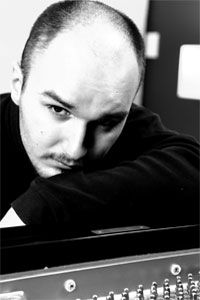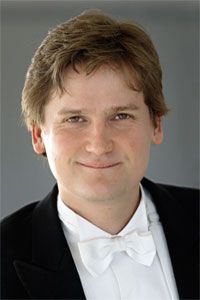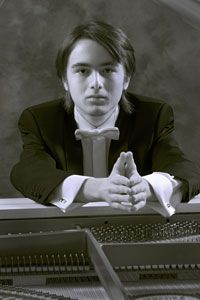|

Rustam Muradov (the biography)
| | Rustam Muradov
Rustam, you are now a third-year student at the Moscow Conservatoire, before that you were at the St Petersburg Conservatoire and prior to that at the Ten Year School, it must be both interesting and demanding to come back to St Petersburg in a new capacity?
For me, taking part in the festival has been an amazingly positive experience. I was performing at the Concert Hall of the Mariinsky Theatre for the first time, though I have made one recording there with the Chamber Ensemble, so you could say I have tried out the acoustics, but that didn’t take long and it was rather a long time ago. The&sp;acoustics are amazing here. It’s great that the auditorium is completely clad in wood. I don’t notice anything here, nothing distracts me, and even the tiniest nuances of the piano can be heard by the audience. To tell the truth I don’t often get to perform in such a venue… When you’re in the auditorium as a member of the audience you feel only emotions and when you understand that tomorrow you will be performing with this orchestra and under such a brilliant musician as Valery Gergiev, you feel very different emotions – and, of course, a sense of anticipation.
Why did you relocate to Moscow? Were you drawn by the atmosphere of the capital or a certain teacher or is it just that there are more opportunities for musicians there?
In St Petersburg I discovered real music. I have spent many years of intensive study here. I came here at the age of fourteen from Ossetia; I picked up a great deal myself and I was also assisted by Marina Wolf. Then I studied in the class of Alexander Sandler at the Conservatoire until my third year – at that time the young pianists were all of a very high standard. It’s probably not right to compare Moscow and St Petersburg – I don’t see any special difference between the two schools. The&sp;Moscow one may be more open and daring, and the ambitions there may be greater, while here it’s more modest and cultured. But everything depends on who your teacher is and the educational “stamp” they leave on you. At present I have the unique Ruvim Ostrovsky as a teacher – he is also a friend. And if it hadn’t been for him I might have gone abroad. But why would I need Paris when I’ve found a teacher, the right teacher for me, whom I never have to leave?
You have spent much of your life in St Petersburg – for a pianist is that a sign of quality, a kind of brand?
Yes; you know, when I went to Australia for a competition and began rehearsing Tchaikovsky’s concerto the first thing the Australians noticed, even without them actually saying so, was that I was a “typical Russian pianist.” Typically, Russian pianists are identifiable by their powerful playing, their mastery of the forte, by their strong hands and openness. We are not noted for Viennese modesty or French charm, although today we should have that too. But the Russian school is already in our blood and that is how we see the world.
How do pianists’ exchanges of experience occur in general and at the festival in particular?
Unfortunately on this occasion I haven’t had the opportunity to hear any of the other pianists, and anyway that’s distracting, although of course all the musicians are wonderful. I spotted Daniil Trifonov rushing past. I managed to have a chat with Olli Mustonen in the car; we talked about pianos – Italian ones, German ones, French ones, Austrian ones and so on. It was really very nice to see that some of our preferences matched up. We compared a Steinway to a Mercedes and a Fazioli to a Ferrari… On the other hand, exchanges – albeit one-sided – normally take place through recordings.
Whom do you listen to most – your contemporaries or pianists of the last century?
I love the old European pianists and those who left Russia in the late 19th and early 20th centuries, for example Vladimir Horowitz. And also Mikhail Pletnev with his individual, madly interesting interpretations as a man who thinks, a philosophising pianist. Unfortunately, however, he no longer performs. I am also very attracted by the performing style of Yuja Wang – a young pianist and, untypically for Asians, she plays with heart and soul. And, of course, Grigory Sokolov… I would love to talk to him, but then gods are never within reach.
|


